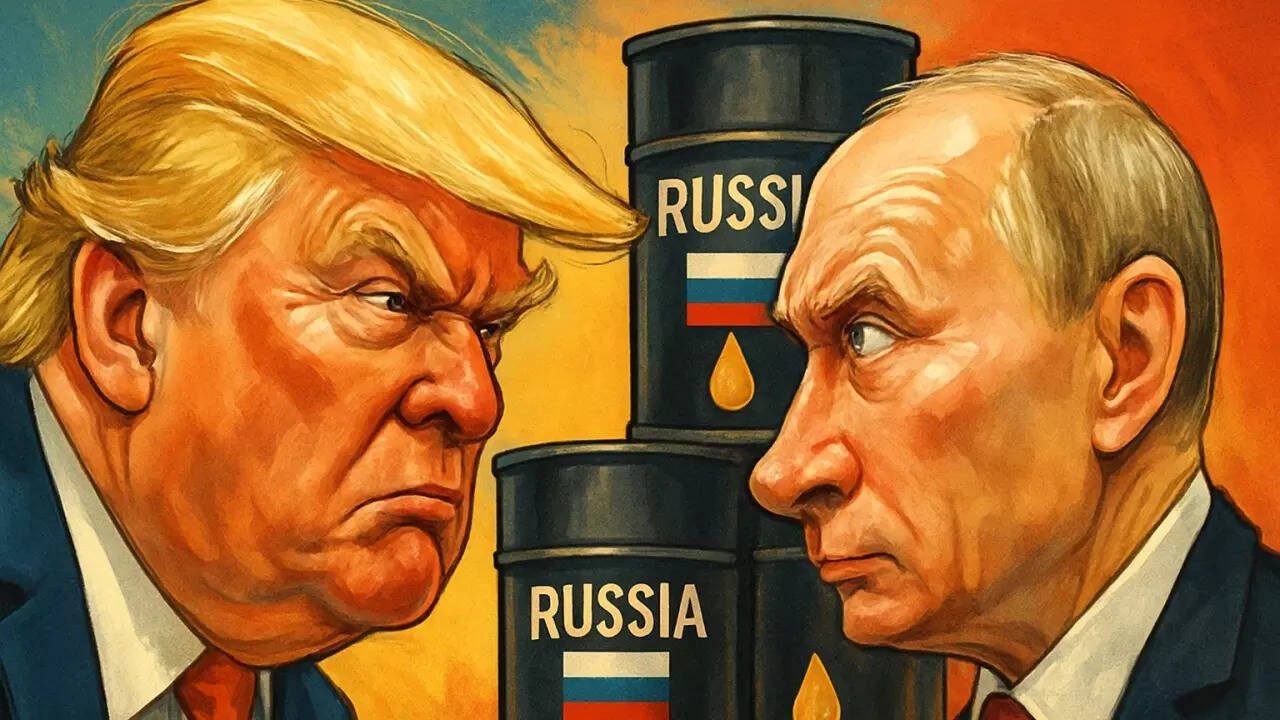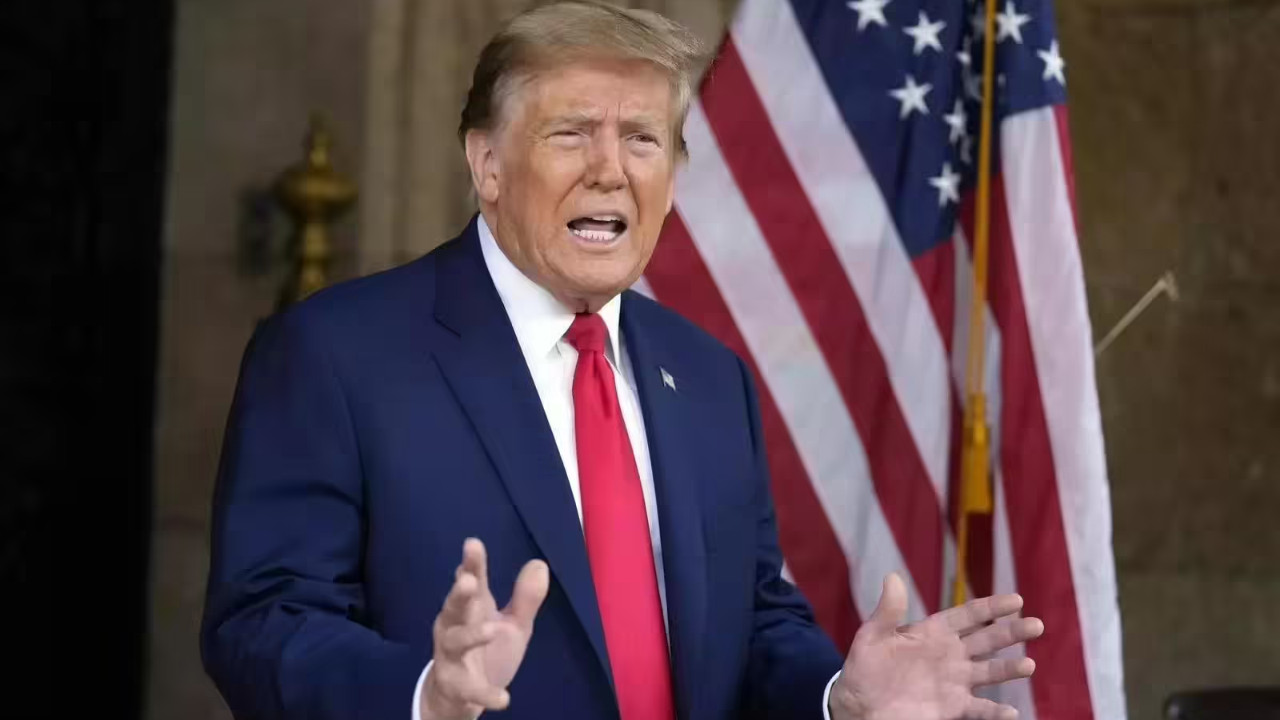Russia has criticized the Trump administration’s new sanctions on its oil firms, stating they are counterproductive to peace efforts in Ukraine and that the nation is immune to such restrictions. President Trump expressed frustration over a lack of progress in diplomatic talks with Vladimir Putin, hoping the sanctions on Rosneft and Lukoil would be short-lived.
The Bear Still Roars: How Russia’s Oil Sector is Dodging Sanctions
The global energy landscape is a complex beast, a high-stakes game of chess played with pipelines and petrodollars. Recently, the U.S. ratcheted up the pressure, slapping sanctions on several Russian oil firms, a move reminiscent of moves from the Trump era. The intention? To further squeeze Russia’s financial jugular and limit its ability to fund, well, you know.
Moscow, however, isn’t exactly trembling. Their response? “Entirely counterproductive.” And behind the bluster, there’s a growing sense that Russia, despite the barrage of Western restrictions, possesses a surprising resilience.
So, how is Russia managing to keep the oil flowing, and what does this mean for the rest of the world?
Navigating the Sanctions Maze: A Masterclass in Adaptation
Let’s be clear: sanctions do sting. They complicate financial transactions, restrict access to certain technologies, and generally gum up the works. But Russia has become adept at navigating this complex web of restrictions, employing a multi-pronged approach that’s proving surprisingly effective.
One key strategy involves a shift towards non-Western markets. While Europe has significantly reduced its reliance on Russian energy, countries like China and India have eagerly stepped in to fill the void. These nations, with their rapidly growing economies and insatiable thirst for energy, offer a vital lifeline for Russian oil exports.
Furthermore, Russia is becoming more innovative in its methods. There are whispers of using shadow fleets – tankers operating outside the usual regulatory framework – to transport oil, obscuring its origin and destination. This isn’t to say the oil is of poor quality; Russia is simply getting creative with shipping. The nation’s oil production isn’t faltering as much as many anticipated.

Why Traditional Sanctions Are Missing the Mark
The fundamental problem is that oil is a global commodity. Reducing supply from one source doesn’t magically eliminate demand; it simply redirects it. Sanctions aimed at curbing Russian oil exports are, in effect, creating opportunities for other players, and potentially driving up prices for everyone.
What’s more, sanctions often have unintended consequences. Restricting access to Western technology, for example, might push Russia to develop its own domestic capabilities, leading to greater self-sufficiency in the long run. It’s a high-risk gamble with uncertain rewards.
The Shifting Sands of Global Energy Politics
The sanctions against Russia’s oil firms highlight a broader trend: the evolving landscape of global energy politics. The West’s dominance in the energy sector is waning, as emerging economies like China and India assert their influence. This shift is creating new alliances and reshaping the balance of power.
This situation also highlights the growing need for Europe to fully transition to renewable energy sources. Reducing the reliance on fossil fuels entirely would make the west a lot less vulnerable to these kinds of geopolitical issues. We need to see that move happen quicker.
What Does This Mean for the Future?
The short-term implications are clear: Russia will likely continue to find ways to circumvent sanctions and maintain its oil exports. This means that the pressure on global energy prices will persist, and the political tensions surrounding the energy sector will remain high.
In the long run, the success (or failure) of these sanctions will have a significant impact on the future of global energy politics. If Russia manages to weather the storm, it could embolden other countries to resist Western pressure and pursue their own independent agendas. Conversely, if the sanctions prove effective, they could serve as a powerful deterrent against future transgressions.
The situation emphasizes the need for nuanced strategies in the global energy game. Broad, blunt sanctions might create more problems than they solve. A more targeted and collaborative approach, focusing on addressing the underlying causes of the conflict and promoting sustainable energy alternatives, may ultimately be more effective. Navigating this complex web of challenges will require careful diplomacy, strategic thinking, and a willingness to adapt to a rapidly changing world. This delicate energy balance is likely here to stay for the foreseeable future.
Conclusion: A New Era of Energy Resilience
The sanctions imposed on Russian oil firms are a powerful reminder of the interconnectedness of the global energy market and the limitations of traditional punitive measures. Russia’s resilience demonstrates that even in the face of significant pressure, alternative pathways and evolving geopolitical dynamics can reshape the landscape. This challenges the West to reassess its strategies, embrace collaborative solutions, and accelerate the transition to a more sustainable and secure energy future. The ability of the Russian oil sector to adapt highlights the need for continuous innovation and strategic foresight in navigating the complexities of the 21st-century energy landscape.







